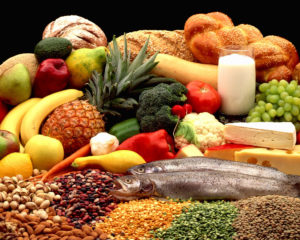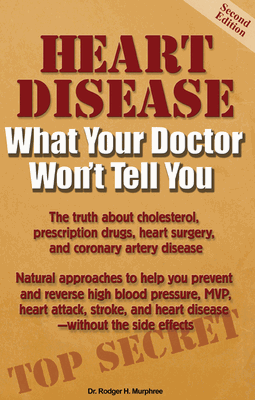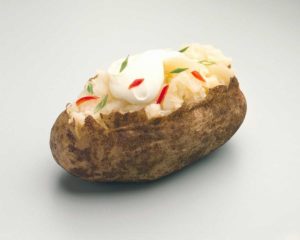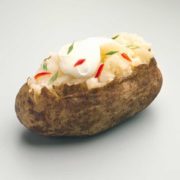Twelve Heath Habits That Help You Feel Better And Live Longer
 Updated January 2020
Updated January 2020
Well it is that time of year again. Another year has come and gone, time to reflect, start anew with a clean slate. If one of your resolutions was to be healthier in 2020, then I’d like to offer 12 suggestions for improving your health.
Over the next 6 weeks I’ll be sharing some of the most important health habits, the ones that long-term, make the biggest impact on your overall health.
Don’t get bogged down in the minute details, keep your eye on the big picture. Add the habits that apply to you. Do your best to add as many as possible, at your own pace. If you fall off the wagon and slip up, don’t get discouraged. It is the day-to-day choices that make the biggest difference, good or bad, in our health. Think long-term not short term.
The key for incorporating any health enhancing strategy is to make it a habit, do it day in and day out until becomes part of your lifestyle.
Like most habits it can be initially hard, however, awareness and determination usually prevail.
 My first suggestion for improving your health, one that will pay huge dividends as the years go by, is to focus on making your diet as healthy as possible. This doesn’t mean you can’t have a treat every now and then, far from it, since I believe moderation is the key to good health. However, it does mean avoiding artificially, nutrient deficient, health robbing foods.
My first suggestion for improving your health, one that will pay huge dividends as the years go by, is to focus on making your diet as healthy as possible. This doesn’t mean you can’t have a treat every now and then, far from it, since I believe moderation is the key to good health. However, it does mean avoiding artificially, nutrient deficient, health robbing foods.
Simply put, eat, at least majority of the time, “real food.”
What is real food? Real food, or whole food, is food that comes from a vine, bush, tree, underground, or animals.
Whole foods are foods that are unprocessed and unrefined, or processed and refined as little as possible, before being consumed. Eating whole, unprocessed foods, ideally organic, provides the nutrients the body needs to get healthy and stay healthy.
You’ll typically find whole foods on the outside aisles of your grocery store, fruits, vegetables, nuts, dairy products, and meats. Whole grain rice, breads, oats, corn, and legumes are also allowed on a whole foods diet. I believe most people will see a health benefit from limiting or avoiding gluten foods, and for wheat in particular-a little goes a long way. For optimal health wheat should be avoided or at least restricted to a periodic treat (please read Wheat Belly by William Davis, M.D.).
Eating, preferably, organic fruits and vegetables, 5-7 servings a day, helps keep illness away. It isn’t anything you’ve not heard before. Thousands of clinical studies convincingly show that eating fruits and vegetables keep you healthy, and decrease your risk from numerous dangerous, potentially life threatening illnesses.
It seems so simple, and it is, eat 5-7 servings of fruits and vegetables a day and help keep the doctor away. Start your day off right with a bowl of chopped apples, nuts, and berries. Salads are an easy and delicious way to get those needed fruits and vegetables in your diet. Start with spinach, romaine, kale, or mixed greens and add as many veggies and fruits as you like-tomatoes, carrots, avocados, cucumbers, peppers, broccoli, cauliflower, olives, or beets.
 Animal products should come from grass-fed cattle, chicken, sheep, etc, wild fish, shellfish from unpolluted waters, eggs from pastured hens, etc. By eating grass fed livestock, you’ll reduce your intake of omega 6-grains. An overabundance of omega 6 fatty acids, from vegetable oils and grain fed livestock, can lead to inflammation.
Animal products should come from grass-fed cattle, chicken, sheep, etc, wild fish, shellfish from unpolluted waters, eggs from pastured hens, etc. By eating grass fed livestock, you’ll reduce your intake of omega 6-grains. An overabundance of omega 6 fatty acids, from vegetable oils and grain fed livestock, can lead to inflammation.
Eat full-fat dairy, preferably raw and/or fermented (e.g. yogurt or kefir). Animal fats are actually encouraged as they provide healthy fats. Eat eggs and butter, don’t worry about cholesterol, you’ll live be healthier, and live -longer. Eighty percent or more of your cholesterol is made by the body-diet doesn’t make much of a difference (read my book, Heart Disease: What Your Doctor Won’t Tell You).
Eat seeds, grains, legumes, or nuts preferably in their raw state.
Oils should be limited to “traditional oils” such as olive, coconut, palm, and small amounts of sesame and flax. Specifically to be avoided are soy, corn, safflower, canola (moderation please), or cottonseed oils, and any oil heated to a high temperature in processing.
Cod liver oil, and deep cold water fish are great sources of anti-inflammatory essential fatty acid omega 3, and are highly recommended.
Do your best to limit processed foods, hydrogenated or partially hydrogenated oils, protein powders, powdered milk, processed meats (e.g. luncheon meats), unprepared nuts and grains, artificial sweeteners, and other additives.
Limit high glycemic foods, a little is ok, moderation is the key.
- Table sugar (sucrose; may be cane sugar or beet sugar)

- Honey (go easy)
- Agave (go easy)
- Corn syrup
- Brown sugar
- Molasses
- Maple syrup
- Fructose (except that naturally occurring in whole fruits)
- Maltose
- Dextrose (any ingredient ending in “ose” is a sugar, except for cellulose, which is plant fiber),
- Splenda® (mostly dextrose) (avoid)
- Fruit juice concentrates
Fruit Juice – ok to use small amounts in recipes or as a treat.
Reduce or eliminate wheat flour. If you can’t give up those peanut butter sandwiches, then 100% stone-ground, whole meal flours are less refined and not as unhealthy as other types of flours. I know, take a deep breathe, giving up bread seems cruel punishment, make your own health choices, try it for awhile and see what you think.
White or polished rice is a no no-devoid of nutrients and fiber, instead use whole grain or wild rice.
Go easy on these fruits as they have a high sugar content and high glycemic index:
- Watermelon
- Cantaloupe
- Pineapple

Same for these vegetables:
- White potato
- Parsnip
- Beets
- Cooked Carrots
Don’t get discouraged and don’t overanalyze this list, simply eat real food, food that is minimally processed. Reduce sugar and high glycemic foods. Do a trial of avoiding wheat or gluten products for 3-4 weeks, see if you feel better. Try to eat grass fed livestock when possible. Eat 5-7 vegetables or fruits a day. It will take time and this is the first of several health habits to come, but eating a whole foods diet will pay health dividends for years to come.
RELATED LINKS:
Heart Disease: What Your Doctor Won’t Tell You
Dr. Murphree’s Jump Start Weight Loss Program – SAVE $400 NOW!





Leave a Reply
Want to join the discussion?Feel free to contribute!